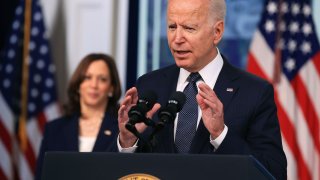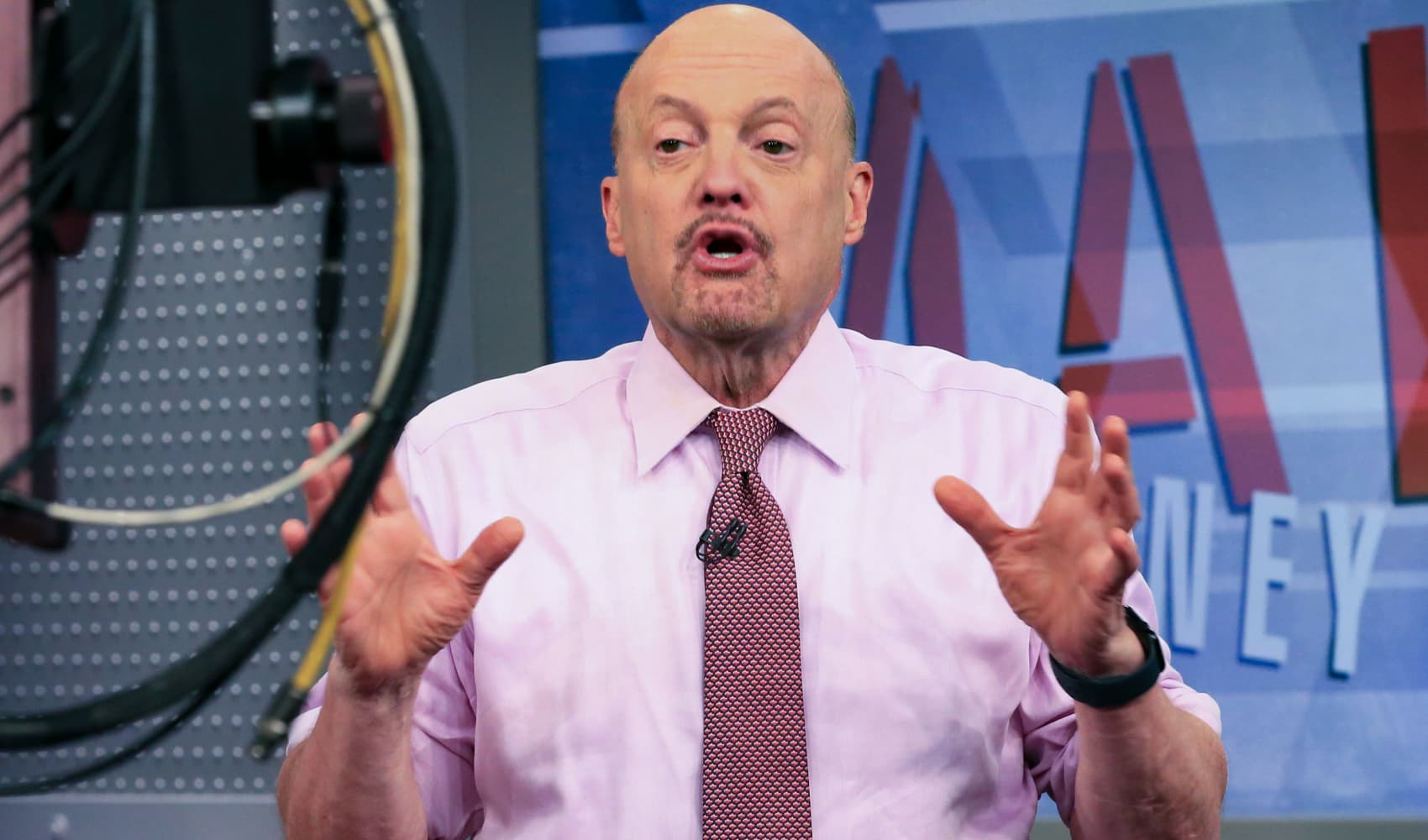
- President Joe Biden's federal child tax credit program is one of the best ways the government can spend money, University of Maryland economist Melissa Kearney told CNBC on Thursday.
- More than 35 million families received the first payment on Thursday as part of the administration's historic bid to alleviate child poverty in the U.S.
- Kearney said "we have tons of evidence" showing that supplementing families' incomes leads to improved educational and economic outcomes for children that last into adulthood.
- "If we committed to this type of a child allowance, we could raise taxes in ways that could cover that without upending all of our existing social insurance programs," the economist said.
The enhanced federal child tax credit program, with monthly payments starting Thursday, is one of the best ways the government can allot its money to spur economic growth and help the nation's youth, University of Maryland economist Melissa Kearney told CNBC.
"What I think makes this policy expansion both politically and economically feasible — and generally very good policy — is the fact that it's targeted on families with children," Kearney said Thursday in an interview on "The Exchange."
Get Southern California news, weather forecasts and entertainment stories to your inbox. Sign up for NBC LA newsletters.
"Frankly, this is one of the best ways the federal government can and should be spending money from the perspective of social return," added Kearney, whose research focus is domestic policy with an emphasis on inequality and poverty.
More than 35 million families received the first of six monthly child tax credit payments on Thursday, according to the U.S. Treasury Department and Internal Revenue Service. The first round of payments will reach nearly 60 million children and total about $15 billion, according to the agency. The average payment this round is $423.
Parents and caretakers of nearly 90% of children in the U.S. will receive the stimulus payments, which were included in the $1.9 trillion Covid relief package signed into law by President Joe Biden in March. The program is a historic bid to reduce the nation's child poverty by 50% and represents one of the largest anti-poverty measures in the U.S. since the launch of former President Lyndon B. Johnson's war on poverty in 1964.
Money Report
Kearney, who is also a research associate at the National Bureau of Economic Research and a nonresident senior fellow at the Brookings Institution, said "we have tons of evidence" showing that supplementing families' incomes leads to improved educational and economic outcomes for children that last into adulthood.
While families have received child tax credits for years, Biden's American Rescue Plan increased payment amounts per child, qualified low-income families who have little or no taxable income, and modified the payment distribution so that families will get half the total sum in monthly, direct deposits from July until December.
Families will receive $250 per month for each child between the ages of 6 and 17, amounting to $3,000 in total payments, while the monthly payout for each child under the age of 6 is $300 per month, for $3,600 in total.
Qualifying for the full amount are the following taxpayers: individuals making $75,000 or less, heads of households earning $112,500 or less, and married couples filing taxes jointly making under $150,000. Payments begin to phase out for those who earn above those income levels.
In a note published Tuesday, analysts at investment bank Cowen said these child tax credit payments are an "underappreciated stimulus" that could lift sales across the retail, restaurant and travel industries as the nationwide spending ramps up due to Covid vaccinations. The Cowen analysts predicted families will spend their money on food for the home, dining out and shopping online. They also expect the one-year relief program to be extended through 2025 through a reconciliation bill.
"It certainly will add to spending, but most importantly, it provides support for families to be able to take care of the needs of children," Treasury Secretary Janet Yellen said in an interview that aired Thursday on CNBC's "Closing Bell."
Kearney said paying out the child tax credit in monthly installments is not necessarily an on-ramp to creating a broader universal basic income program in the U.S. However, she said, this pandemic-era policy would "ideally" pave the way for a child allowance program in the future.
Many other developed countries, including Canada, Germany and the U.K., already provide a monthly child benefit.
Kearney said detaching the child allowance program from the "extremely complicated" U.S. tax code would help both the lowest-income families, who need the assistance but usually don't make enough money to file tax returns, and middle-income families, who have to figure out if they will owe more taxes in April after receiving these payments.
She suggested the program could be run through the Social Security Administration.
"We could have a streamlined spending program that we could commit to in the federal budget, and then families wouldn't have to do this really complicated dance of figuring out how this affects their overall tax credit, wondering whether they're going to get this check just to have to pay it back," Kearney said.
"If we committed to this type of a child allowance, we could raise taxes in ways that could cover that without upending all of our existing social insurance programs, which essentially would be required for an actual universal basic income not targeted on children," Kearney said.






